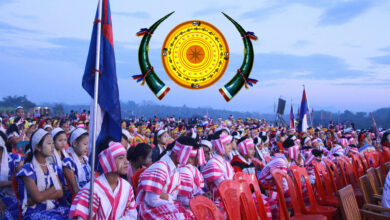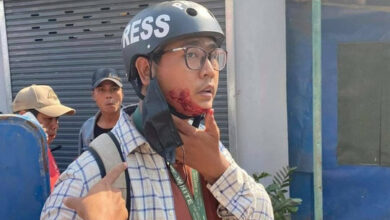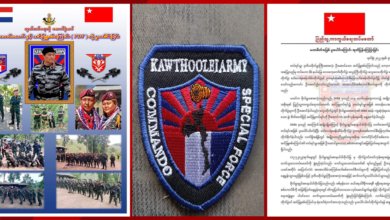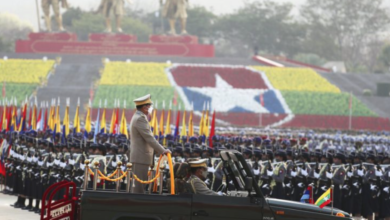International Human Rights Day: The Voices of Refugee and Displaced Women in Myanmar Must be Listened To and Not Forgotten
December 10, marks the last of the 16 day Campaign to End Violence Against Women and Girls. On this international day, let us be reminded that women of Burma are the stronghold for the country, community and family.
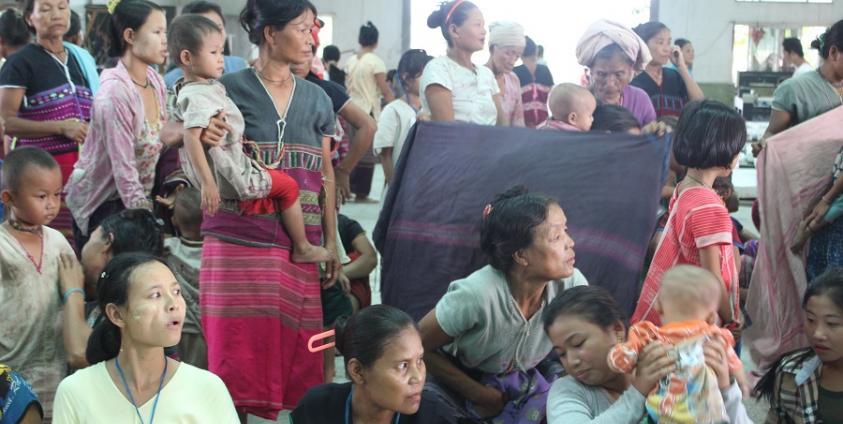
*By Myra Dahgaypaw and Maggi Quadrini
An entangled political situation has driven internal civil war to the outer regions of the country’s vast and densely populated ethnic states for nearly seven decades. Despite the mass human rights violations that have forced civilians in Burma to flee to monasteries, churches and places of solace to seek refuge, including the borders of neighboring Thailand and Bangladesh, the leadership of women and women’s rights organisations is a testament to the resiliency that is possible in the midst of fear and the unknown. The experiences of women refugees must be heard to serve as a reminder of the challenges that still facing refugee women and IDPs and the urgency to act.
Women who carry the physical and psychosocial wounds of war are considered victims and survivors. But this description suggests that they are complacent. Their struggle has been met with great efforts to overcome from within, and to persevere not because of their circumstances, but in spite of them. Outwardly, this reliance may present itself as though they are fine and not in need of support. However, the reality on the ground is that grassroots organizations are struggling to ensure adequate funding and material support is available for refugees living along the Thai-Burma border and in displaced communities inside Burma. Alarmingly, 99% of gender related international aid fails to reach women’s rights and feminist organizations directly. International Human Rights Day is an opportunity to reflect on the progress made to support refugee women, but an even greater opportunity to address gaps that have held back change where it is so urgently needed.
While the visibility of the work of women’s organizations in Burma has gained significant traction, there remains a lack of funding to advance the work in more meaningful ways to reach more people in need. Direct funding is one-way donors can ensure women’s organizations can receive the resources they need through flexible, core support grants. This ensures that the receiving organization can decide how funds are spent based on where the need is most urgent. For community-based organizations (CBOs) in Burma working inside the country or along the border, flexibility is key in ensuring protection needs are met. Domestic violence, sexual gender-based violence, child neglect and compromised access to justice referral pathways are all legitimate concerns facing displaced communities. Ownership over the funds by locally led organizations ensures that funding can flow directly to the communities where it is most needed. This may include covering legal fees, providing food and hygiene items to injured women, or towards capacity building and awareness training.
Of particular concern to women’s organizations in Burma is the lack of trust and ownership over funds channeled through the Burmese government. Given that many CBOs are not registered, this presents another challenge – eligibility. Not being registered limits the access to funding from international governments. For those that do receive the funds, the monitoring and oversight of the government can be a deterrent in how the funds are used, given the history of using draconian laws against human rights defenders for their agenda. Another disadvantage of funding being delivery through government programs is that lack of understanding on the challenges grassroots women’s CBOs are facing, which can make for a hostile response in attempting to fund programs that contradict state authority. There is not only a responsibility, but in fact, an obligation for the international community to listen to the evidence and facts being presented through well documented reports by grassroots women’s organizations about how international development agencies and donors can advance their work.
The calls to support the leadership of women in refugee and displaced communities must not be made in an echo-chamber. The international community must put women at the forefront of the causes they are leading by funding disadvantaged groups with an emphasis on empowerment and ownership of decisions they are more than capable of making. Calls to support refugee leadership can be done through funding and to do so in collaborative ways that do not reduce the dignity of refugee women, but that elevate and give rise to their causes and ensure their work can continue.
*Myra Dahgaypaw, Managing Director at the US Campaign for Burma, Karen human rights activist from Karen State, Eastern Burma.
Maggi Quadrini, Border Activist – Maggi Quadrini works on human rights for community-based organizations on various projects along the Thailand-Myanmar border.

